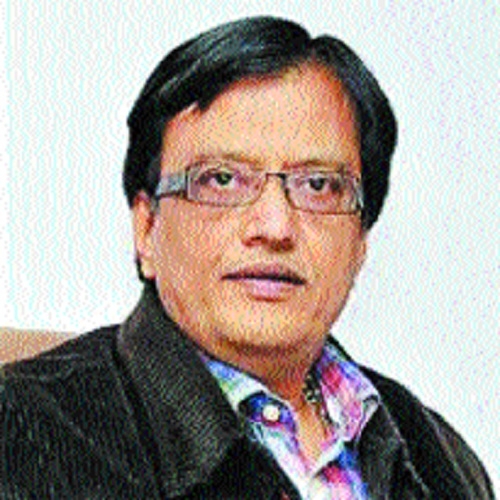‘Institution-industry disconnect increases Engineering vacancy’
| Date :06-Jun-2019 |

Dr S S Mantha
By Vikas Vaidya:
States need Labour Management Information System to know student-course ratio, suggests Dr S S Mantha, former Chairman of AICTE
Technical institutions in India are facing the problem of seats vacancy. Barring a few top institutions, other institutes are sweating it out to get seats filled. Efforts were made by the Government and institutions to get into the crux of the problem and find solution. Previous Government in Maharashtra, under the regime of Chief Minister Prithviraj Chavan, had constituted a committee under the Chairmanship of Dr G D Yadav. The panel had submitted a report with recommendations. But the Government failed to ensure implementation of the recommendations causing consistent rise in vacancies in technical institutions making both -- institutions and Government look at each other.
‘The Hitavada’ talked to Dr S S Mantha, former Chairman of All India Council for Technical Education (AICTE) to know reasons behind rising vacancies in technical institutions. Prof Mantha, during his tenure as AICTE Chairman, had introduced several programmes, initiated ideas to strengthen the sector of technical institutions. Unfortunately, those could not got percolated and never implemented. Had they implemented, it would have made positive difference.
“There are several reasons for seat vacancy in engineering colleges. Career opportunities are related to jobs. Providing jobs is not under the AICTE. But it is the most important aspect. Every year, we produce 6 million graduates from all streams, including one million from engineering. We don’t have jobs for them. We should give a serious thought of providing jobs to those many students and for which we have to create those many jobs,” said Prof Mantha. When asked, how would those many jobs be created? Prof Mantha said, “Institutions have totally disconnected from the industry. We talked lot on industry-institute linkage but did nothing. Most of the developed countries have Labour Management Information System. This system is supposed to collect the data of what kind of labour we require?
It would do mapping of the industries in a particular area. It would also find out how many jobs it would create? What kind of jobs would be available? What kind of specialisation of skill should be imparted to students to make them employable? We have completely disconnected from the Ministry of Micro, Small and Medium Enterprises (MSME). Cluster of MSMEs can have connect with the institutions for creation of jobs. This cluster will also help in transforming candidate becoming entrepreneur. This data will help us to know the picture of engineering education and admission a clear manner.”
“Suppose we find that the need of chemical engineers is 5% then it could be processed in that way,” pointed out Dr Mantha. According to Dr Mantha, the big associations like Federation of Indian Chambers of Commerce and Industries (FICCI), Confederation of Indian Industries (CII) should take a lead. Dr Mantha regretted that the perspective plan made by the universities and States has not been giver a serious thought. Even the colleges, not recommended by the committees, get approval using certain influences. Dr Mantha had asked all the States to get the data of students passing Class XII and opting various courses. The data was supposed to be made of number of students opting for courses. Had all the States responded, it could have become easier to find out the ratio of students to that of the courses offered. Dr Mantha did expect the data of five years.
The data could have helped the policy-makers during allocation of colleges and the areas. This also could have helped in avoiding repeatation of colleges of same course in the same areas, commented Dr Mantha. To Dr Mantha’s letter then, only one state -- Andhra Pradesh had responded that too in a superficial manner. Irregularity in disbursing of scholarship amount being paid to colleges against the fees of students of reserved category is marring the quality of technical education, feels Dr Mantha. “About 90% of the fees colleges do receive through various scholarship to be provided to students. Unfortunately in the payment system there are lot of problems due to which colleges have started getting financially burdened. This is one reason where the quality has hampered and become difficult for the owners to run them. Number of colleges applying for closure have increased in all these years.”